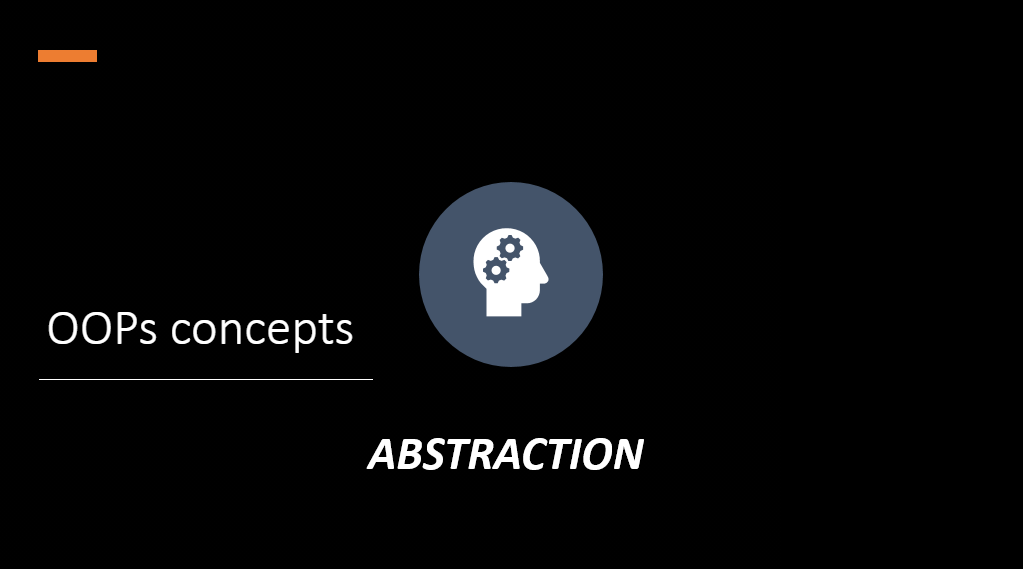This Articles Contents
What is abstraction ?
Abstraction is the practice of hiding from the outside world the internal information of an application. To explain things in simple terms, abstraction is used. It’s used to establish a boundary between the client systems and the application.
This is
Real world example
Let ‘s take the first example of a vehicle that abstracts the internal information and reveals only those data to the driver that are important to the driver’s interaction with the vehicle. Like we are giving only break and accelerator, don’t give any internal working of it.

What are the different abstraction types?
There are two types of abstraction.
- Data Abstraction
- Process Abstraction
Data Abstraction It provides data abstraction where the object data is not accessible to the outside world. If required, some methods provide access to the objects’ data.
Process Abstraction
We don’t need to provide information on any of an object’s functions. It provides method isolation as we cover the internal implementation of the multiple functions involved in a user operation.
AirPlane is interface
package com.onurdesk.oop.abstraction;
public interface Airplane{
void takeOff();
void landing();
String getFlightType();
}
PassengerPlan and FighterPlan are the implementation of Plan
package com.onurdesk.oop.abstraction;
public class FighterAirplane implements Airplane{
private String flightType = "FighterPlan";
@Override
public void takeOff() {
System.out.println("The Airplane is take off ");
// TODO Auto-generated method stub
}
@Override
public void landing() {
System.out.println("The Airplane is landing ");
// TODO Auto-generated method stub
}
@Override
public String getFlightType() {
// TODO Auto-generated method stub
return this.getFlightType();
}
}
package com.onurdesk.oop.abstraction;
public class PassengerAirplane implements Airplane{
private String flightType = "PassengerPlan";
@Override
public void takeOff() {
System.out.println("The plan is take off ");
// TODO Auto-generated method stub
}
@Override
public void landing() {
System.out.println("The plan is landing off ");
// TODO Auto-generated method stub
}
@Override
public String getFlightType() {
// TODO Auto-generated method stub
return this.getFlightType();
}
}
package com.onurdesk.oop.abstraction;
public class AirplaneTest {
public static void main(String[] args) {
Airplane plan1 = new PassengerAirplane();
Airplane plan2 = new FighterAirplane();
plan1.takeOff();
plan1.landing();
System.out.println(plan1.getFlightType());
plan2.takeOff();
plan2.landing();
System.out.println(plan2.getFlightType());
}
}
The client software knows only about the Airplane and the functions that are given by the schedule. The internal specifics of deployment are withheld from the client program.
Quiz
| 1. Identify basic abstractions of data and related processes in your kitchen. Justify these abstractions by demonstrating that these abstractions can help to handle the shift as specifications change. |
| 2. Identify basic abstractions of data and related processes in your kitchen. Justify these abstractions by demonstrating that these abstractions can help to handle the shift as specifications change. |
